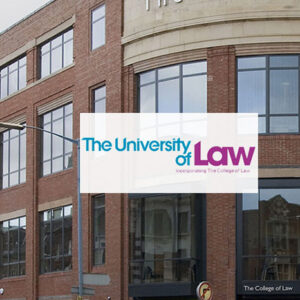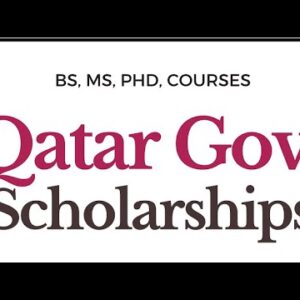
The Introduction: Why Getting This Right Matters
Believe it or not, missing a single tiny detail can cost you thousands of dollars in scholarship funding. As an experienced writer who’s helped countless students nail their scholarship applications, I know how exciting—and nerve-wracking—it can be. Think of this post as your trusted guide: we’ll walk through the major missteps applicants make, sprinkle in powerful “aha” moments, and serve encouragement when procrastination or overwhelm threatens your focus.
You’ll leave this post feeling:
- Clear on the most critical pitfalls to avoid.
- Confident in building a strong, standout application.
- Empowered to take action early with precision.
Let’s get started.
1. Missing Deadlines or Starting Too Late
The mistake: Starting your applications at the last minute or missing deadlines entirely.
- Scholarships often boast non-negotiable deadlines. Submitting late usually means automatic disqualification.
- Worse yet, procrastination invites rushed essays, missing documents, and needless stress.
Why it hurts: It signals disorganization and lack of seriousness. Top programs prize applicants who demonstrate responsibility.
How to avoid it:
- Start early. Set your calendar 6–12 months in advance.
- Create a scholarship roadmap. Use reminders and track deadlines in a planner or an app.
- Submit early. Shoot to finish each application a few days ahead to avoid technical glitches or last-minute chaos.
“Set internal deadlines … break the process into smaller tasks” is effective guidance.
2. Ignoring Guidelines and Eligibility Requirements
The mistake: Applying without checking eligibility or skipping application instructions.
- Many students apply to scholarships they don’t even qualify for.
- Overlooking formatting, word limits, and required documents can kill otherwise strong apps.
Why it hurts: It shows a lack of detail orientation, and most committees won’t bend the rules.
How to avoid it:
- Read every guideline carefully. Pay attention to eligibility, word counts, required documents.
- Create a checklist and tick off each requirement before submitting.
- Only apply to scholarships that suit you. Align your profile with the provider’s criteria.
3. Submitting Generic Essays
The mistake: Using the same essay for all applications.
- Generic, cookie-cutter essays don’t resonate. Scholars want to see your unique voice and goals.
Why it hurts: It diminishes your authenticity and shows minimal effort.
How to avoid it:
- Tailor each essay to reflect the scholarship’s mission or values.
- Tell your story. Use real examples and passion-driven narratives.
- Make it personal. Explain why this scholarship matters to you, specifically.
Comparison Table: Quick View of Mistakes & Solutions
| Top Mistake | Why It Hurts | Smart Fix |
|---|---|---|
| Missing Deadlines / Procrastinating | Automatic disqualification, stress overload | Start early, use reminders, submit ahead |
| Ignoring Guidelines / Eligibility | Disqualification, looks careless | Checklist, read thoroughly, match your profile |
| Submitting Generic Essays | Bland, impersonal, forgettable | Personalize, story-tell, show genuine fit |
| Poor Proofreading & Typos | Unprofessional, error-prone | Edit thoroughly, use tools, get feedback |
| Weak Recommendations | Vague endorsement, little impact | Ask early, brief recommenders, provide context |
| Incomplete Applications | Partial or missing content disqualifies | Use checklist, double-check, organize files |
| Avoiding Small Scholarships | Missed easy wins, less chances | Apply broadly, local awards count |
| Unprofessional Email / Format Issues | Off-putting, technical issues | Use neat email, correct file formats |
| Ignoring Follow-Up & Interviews | Missed opportunities, poor impression | Respond, prep early, interview smart |
4. Careless Proofreading and Grammar Errors
The mistake: Submitting applications filled with spelling or grammar mistakes.
- Even small typos can make you look careless rather than capable.
Why it hurts: In a sea of polish, errors stand out—and not in a good way.
How to avoid it:
- Use grammar tools like Grammarly or Hemingway.
- Read your essay aloud—you’ll catch awkward phrasing.
- Seek feedback from friends, mentors, or teachers.
5. Weak or Poorly Managed Recommendation Letters
The mistake: Choosing the wrong recommenders or delaying letters.
- Generic or late letters carry little weight with committees.
Why it hurts: Shows poor planning and weak support backing your application.
How to avoid it:
- Pick people who know you well—teachers, club mentors, coaches.
- Ask early—give at least a month for thoughtful input.
- Provide materials like CV and goals to guide their letters.
6. Incomplete or Disorganized Applications
The mistake: Missing documents, wrong file formats, or duplicate info.
- One small missing item can derail your entire application.
Why it hurts: Shows lack of care and professionalism.
How to avoid it:
- Use a complete checklist—include essays, transcripts, scores, IDs.
- Check formatting rules—PDF? DOC? JPEG? Meet each requirement.
- Save everything in an organized digital folder.
7. Overlooking Small or Local Scholarships
The mistake: Only aiming for big awards.
- Big scholarships are highly competitive. Smaller local ones often go unnoticed.
Why it hurts: Missed opportunities that could cover books, travel, or fees.
How to avoid it:
- Apply broadly—both nationally and locally.
- Include small awards—they can add up fast.
- Don’t skip niche or lesser-known awards—they often have fewer applicants.
8. Unprofessional Email or File Format Mistakes
The mistake: Using a casual email address, or sending the wrong file type.
- “partygirl99@example.com” or submitting a Pages document when Word is required.
Why it hurts: Looks unprepared or unprofessional.
How to avoid it:
- Use a simple, professional email, like firstname.lastname@example.com.
- Follow file format instructions—don’t force PDFs when Word is better, etc.
9. Skipping Follow-Ups or Interview Prep
The mistake: Thinking “submit and forget” is enough.
- Some applications require interviews or further steps.
Why it hurts: May miss out on requests or fail to impress if interviewed.
How to avoid it:
- Monitor your email and spam folder for messages.
- Prepare for interviews—know the provider’s mission, your story.
10. Failing to Showcase Leadership, Extracurriculars, or Personal Achievements
The mistake: Focusing solely on grades without personal context.
- Scholarship committees look for well-rounded candidates.
Why it hurts: You appear one‑dimensional or unengaged beyond academics.
How to avoid it:
- Highlight leadership roles, volunteer work, or projects.
- Use specific examples, even small ones—like organizing an event or starting a club.
- Connect those experiences to how you’ll contribute academically or socially.
Final Thoughts: Build a Strategy That Wins
You’ve just seen the top application pitfalls—mostly rooted in timing, personalization, presentation, and organization. Now it’s your moment to flip the script:
- Start early and stay organized with calendars, checklists, and reminders.
- Tailor each essay, follow every guideline, and write in your own voice.
- Proofread relentlessly, ask for feedback, and ensure you’re technically solid.
- Apply to both big and small opportunities, and don’t underestimate your value.
Scholarship success isn’t about luck—it’s about planning, authenticity, and persistence. Avoid these traps, and you’ll become the applicant every committee wants to see.
For Further Guidance;
- Want a detailed breakdown of essay mistakes and how to polish your writing? Check this guide on [Scholarship Success in 2025](Scholarship Success in 2025: 7 Mistakes to Avoid).
- Need insight into personalized vs. ineffective essays? This article on the [5 Big Mistakes Students Are Making When Applying to Scholarships](5 Big Mistakes You’re Making When Applying to Scholarships) is worth reading.
FAQs
1. What’s the biggest mistake students make when applying for scholarships?
The most common mistake is missing deadlines or starting too late. Many students wait until the last minute, leading to rushed applications, incomplete documents, or technical errors. Early planning is essential.
2. Can I use the same essay for multiple scholarship applications?
Yes—but with caution. While you can repurpose core ideas, each scholarship should have a tailored essay. Always revise to match the scholarship’s mission, values, or specific questions.
3. How important are recommendation letters?
They’re very important. A strong, personalized recommendation can set your application apart. Choose someone who knows you well, and give them enough time and context to write a powerful letter.
4. Is it worth applying for small or local scholarships?
Absolutely. Smaller scholarships often have less competition and can still make a big financial difference. Stacking multiple smaller awards can cover tuition, books, or other costs.
5. What should I do if I’m not sure I meet all the eligibility criteria?
Don’t guess—double-check. Contact the scholarship provider for clarification if needed. Applying to scholarships you’re not eligible for wastes time and could hurt your confidence.






